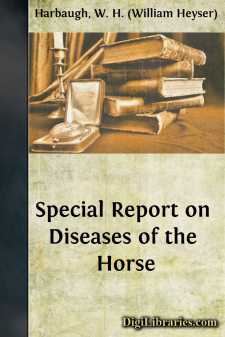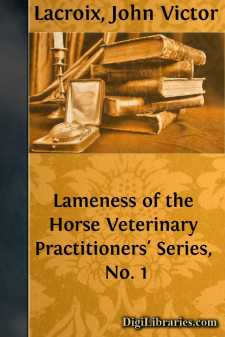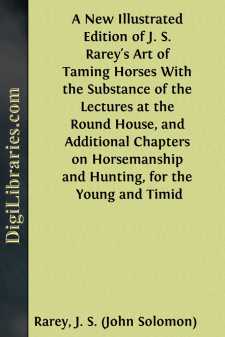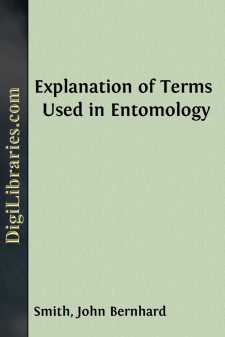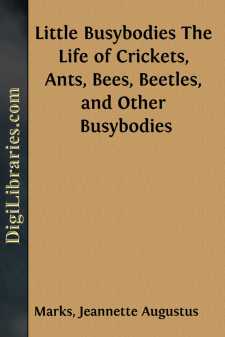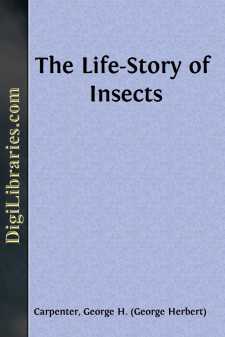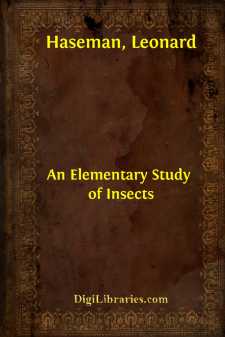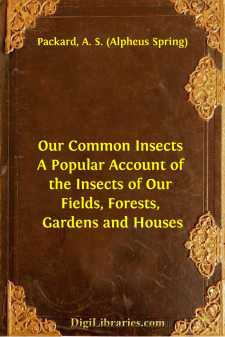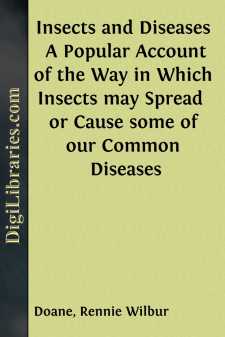Nature
Nature Books
Sort by:
In the examination of a sick horse it is important to have a method or system. If a definite plan of examination is followed one may feel reasonably sure, when the examination is finished, that no important point has been overlooked and that the examiner is in a position to arrive at an opinion that is as accurate as is possible for him. Of course, an experienced eye can see, and a trained hand can...
more...
INTRODUCTION. In presenting the observations contained in the following pages, we are aware that we appeal to practical men who judge by results, and have but slight patience with mere theory. We wish, therefore, to state clearly at the outset, that the system of horse-shoeing herein advocated, and the shoe offered by us to accompany it and accomplish its purpose, are the result of years of patient...
more...
SECTION I. In discussions of pathological conditions contributing to lameness in the horse, cause is generally classified under two heads—predisposing and exciting. It becomes necessary, however, to adopt a more general and comprehensive method of classification, herein, which will enable the reader to obtain a better conception of the subject and to more clearly associate the parts so grouped...
more...
Mr. Rarey is a farmer from Ohio, in the United States. Five years ago he wrote the little book which forms the text of the following complete account of his system, with pictorial illustrations, which are essential for explaining the means he now employs for subduing the most refractory animals. Without these explanations, it would be extremely difficult for any one who had not enjoyed the advantage of...
more...
FOREWORD. When, some time since, in consequence of continuing demands, the Brooklyn Entomological Society resolved to publish a new edition of its Explanation of Terms used in Entomology, and entrusted the writer and two associates with the task of preparing the same, it was believed that a little revision of definitions, the dropping of a few obsolete terms and the addition of a few lately proposed,...
more...
A WORD TO THE CHILDREN AND THE WISE We hope that the children who read this book will like the boys and girls who are in it. They are real, and the good times they have are real, as any boy or girl who has lived out-of-doors will know. And the stories are true. Peter is not always good. But do you expect a child always to be good? We do not. Sometimes, too, the frolics turn into a scramble to catch a...
more...
Among the manifold operations of living creatures few have more strongly impressed the casual observer or more deeply interested the thoughtful student than the transformations of insects. The schoolboy watches the tiny green caterpillars hatched from eggs laid on a cabbage leaf by the common white butterfly, or maybe rears successfully a batch of silkworms through the changes and chances of their...
more...
by:
Leonard Haseman
INTRODUCTION In the preparation of a book of this nature, to be used in the grade schools, we realize that the one fundamental thing to keep in mind is the economic importance of the insect, be it good or bad. The child wants to know what is good and what is bad and how he can make use of the good and how he can get rid of the bad. And yet there is something more associated with the life, work and...
more...
PREFACE. This little volume mainly consists of a reprint of a series of essays which appeared in the "American Naturalist" (Vols. i-v, 1867-71). It is hoped that their perusal may lead to a better acquaintance with the habits and forms of our more common insects. The introduction was written expressly for this book, as well as Chapter XIII, "Hints on the Ancestry of Insects." The...
more...
CHAPTER I PARASITISM AND DISEASE PARASITES he dictionary says that a parasite is a living organism, either animal or plant, that lives in or on some other organism from which it derives its nourishment for a whole or part of its existence. This definition will serve as well as any, as it seems to include all the forms that might be classed as parasites. As a general thing, however, we are accustomed to...
more...


